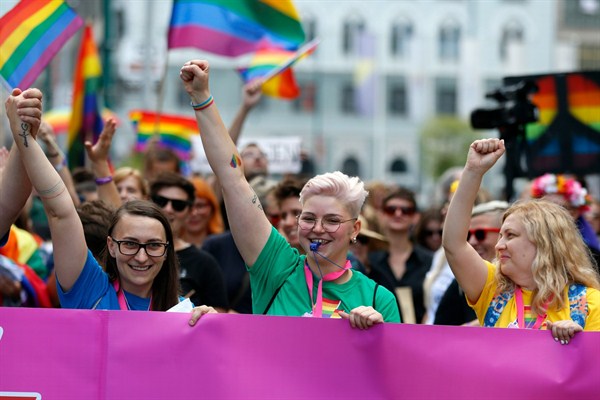Bosnia and Herzegovina hosted its first Pride parade last month, as LGBT activists and supporters marched in the capital, Sarajevo, amid heavy security. Bosnia is the last country in the Balkans to hold a Pride parade. The march’s success testifies to the strength and capacity of Bosnia’s LGBT activists, says Zorica Mršević, principal research fellow at the Institute of Social Sciences in Belgrade, Serbia. In an email interview with WPR, she discusses the recent progress in expanding LGBT rights across the Balkans, and the obstacles going forward.
World Politics Review: What is the current state of LGBT rights in Bosnia and Herzegovina? How strong is the activist community there?
Zorica Mršević: LGBT people are still not equal to heterosexuals in Bosnia and Herzegovina, as is the case almost everywhere in the Western Balkans. Throughout the region, many LGBT people do not dare to come out, fearing that their family will reject them, that they may have to drop out of school, lose their jobs, or be subjected to other forms of discrimination and abuse. And for same-sex couples, there is no way to register a partnership. Things are slowly changing, however, thanks to the LGBT community’s increasing visibility and positive influences from elsewhere in the region and around the world, among other factors.

